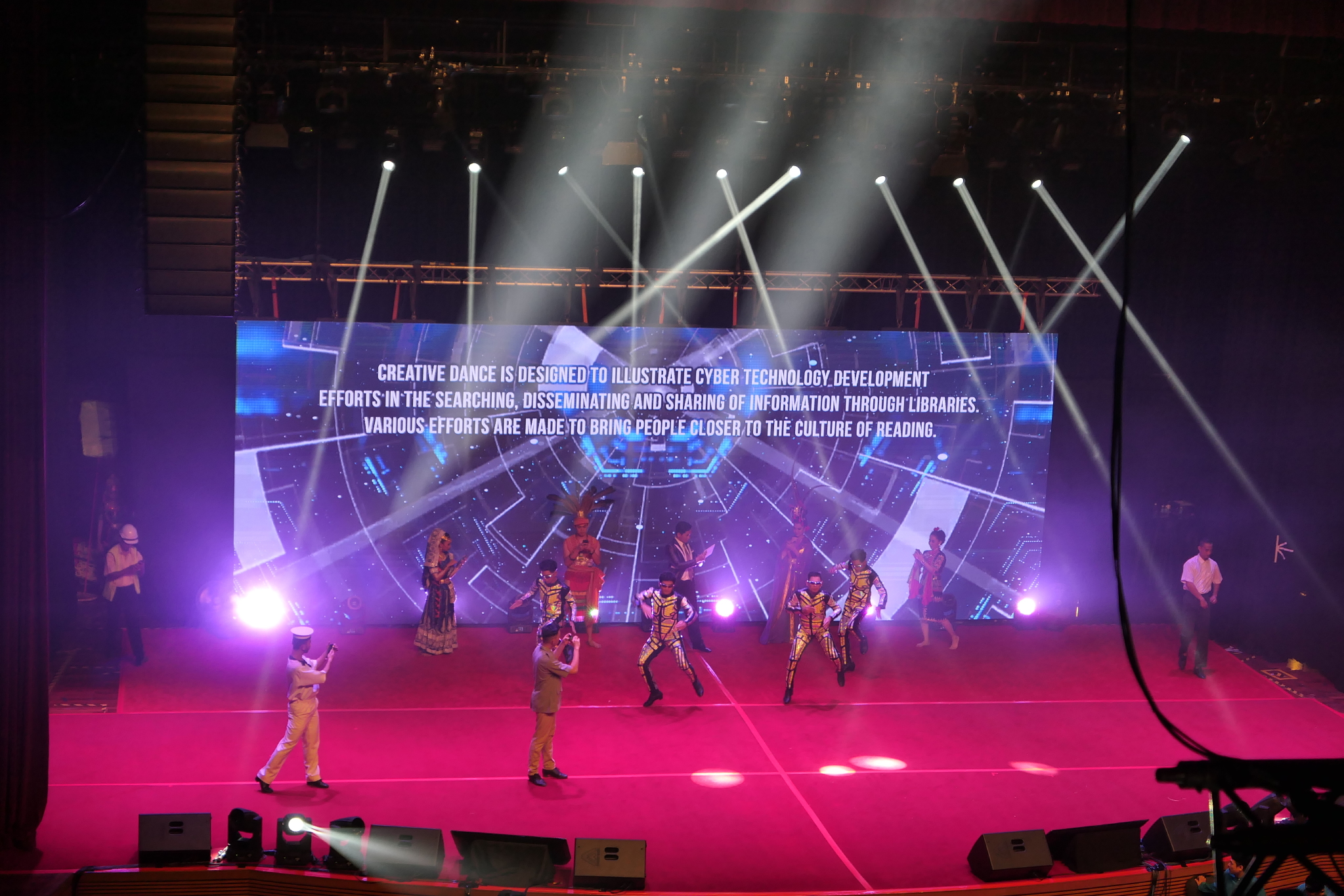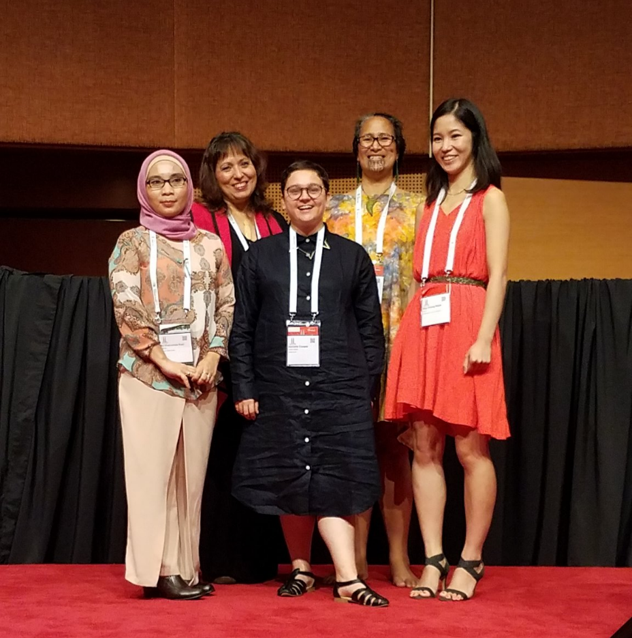Dispatch from IFLA 2018
I recently presented at the 2018 IFLA World Library and Information congress on the Indigenous Studies project. For the project, Ithaka S+R is working with 12 university libraries to understand the research support needs of Indigenous Studies scholars. The project is endorsed by IFLA’s Indigenous Matters section and I presented alongside section member Camille Callison, who is serving as an advisor on the project.
The congress, and IFLA, as an organization, can be very confusing for the uninitiated to navigate. What makes IFLA so confusing is a by-product of its great ambition, to be a truly global library association. In this post I share more about my panel alongside some of my observations as an IFLA newcomer, including identifying some of the key issues to watch at IFLA in the short term.
The organization, and its congress, in a nutshell
IFLA, or International Federation of Library Associations, is a not-for-profit “association of associations” headquartered in the Netherlands. The association acts as a central point for connecting librarians by association type and advocating for library issues globally. Its annual congress feels like a mix of the UN and the Olympics, featuring heavy emphasis on ceremony, nationalism and diplomacy. Operating on such a large and geographically diverse scale, the organization, and its conference, place strong emphasis on internal governance.
In order to not get lost, it is important to seek out and engage with the relevant working groups, sections and caucuses, of which there are over 60, that comprise its current governing logic. At its best, engaging with IFLA represents an opportunity to connect to librarians with similar affiliations and thematic interests on a truly global scale. At its worst is the reality that it is often easier to navigate by adhering to those very same silos and the geopolitical status quo they help to reinforce.

An image from the opening ceremony, which featured a choreographed dance on the themes of the congress and IFLA’s mission. The backdrop for this particular scene reads, “Creative dance is designed to illustrate cyber technology development efforts in the searching, disseminating and the sharing of information through libraries. Various efforts are made to bring closer to the culture of reading.” Photo by Anne Barnhart.
The Indigenous Matters sessions
The Indigenous Matters section organized a session during the main congress, “Diverse indigenous voices: decolonizing, transforming and centring practices,” which I presented on, as well as a satellite meeting on Hard to Reach Libraries and Users: Indigenous Perspectives at the Sarawak State Library.
Reflecting IFLA at its best, representation on the panel I participated on was not only diverse in terms of geography but also types of libraries included. In addition to my talk with Camille Callison, another panelist from Anahera Morehu (Te Tumu Herenga o te Whare Wananga o Tamaki Makaurau, New Zealand) also discussed issues pertaining to supporting Indigenous information in university contexts. Anahera spoke about using Te Tiriti o Waitangi (Treaty of Waitangi) to decolonise practices at New Zealand tertiary institutions. The two other talks on the panel were focused on how libraries can help in broader community contexts. Muy-Cheng Peich shared about a project their organization, Bibliothèques Sans Frontières, undertook in Colombia involving Indigenous communities. Siti Khairunnisa Rosli spoke about an ongoing project at Sarawak State Library in Malaysia promote literacy among the Indigenous communities in that region.

Presenters in the “Diverse indigenous voices: decolonizing, transforming and centring practices” session. Clockwise from bottom left: Siti Khairunnisa Rosli (Sarawak State Library, Malaysia), Camille Callison (Camille Callison (University of Manitoba, Canada), Anahera Morehu (Te Tumu Herenga o te Whare Wananga o Tamaki Makaurau, New Zealand), Muy-Cheng Peich (Bibliothèques Sans Frontières, France), Danielle Cooper (Ithaka S+R, USA). Photo by Lisa Hinchliffe.
Trends to watch
- A stronger position on articulating libraries’ impact
IFLA’s ambitious “Global Vision” project is currently at its mid-way point, including the release of a report highlighting 10 key challenges and opportunities, as identified through a series of workshops with stakeholders. One of the ten opportunities outlined in the report is “the need to ensure stakeholders understand our value and impact.” Assessment research, including that which articulates the impact of library services to stakeholders, has exploded in academic libraries in the past 10 years, but has been relatively less consistently taken up in other library spheres. It will be interesting to see the extent to which and how IFLA encourages assessment work to be taken up across the sheer diversity of library types it represents, and whether it will endeavor to articulate a unified aim and/or approach to assessment across library types.
- The promise of a new governance structure
IFLA is a very challenging organization to get involved with, not only because its governing structure is confusing, but also because of the significant resources involved in participation in global congresses. As a result, certain groups are overrepresented and thereby dominate at IFLA, particularly those who are older, wealthier, and from the West. Starting in August 2019 IFLA will begin a series of activities towards developing and approving a new governance structure by August 2020, which will be fully implemented with the election cycle in 2021. I will be following the reorganization process, focusing particularly on how it relates to making participation in IFLA more accessible for marginalized and currently underrepresented groups.
- Raising its profile on Indigenous information advocacy
The IFLA Indigenous matters section is relatively new and small in IFLA organizational terms but it is developing an increasingly visible profile. With the 2020 IFLA world congress being held in New Zealand, a region known for some of the most dynamic work on Indigenous information advocacy, watch for those issues to be a central theme for that congress. It will also be interesting to watch how IFLA supports the Indigenous matters section leading up to the congress and how that support is leveraged towards raising the association’s profile on these issues more broadly.